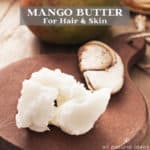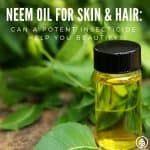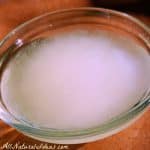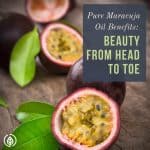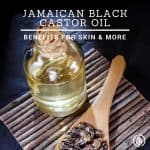Like coconut and olive, grapeseed has become a popular oil as of late for its positive effects on health. But are there also grapeseed oil benefits for skin and hair, too?
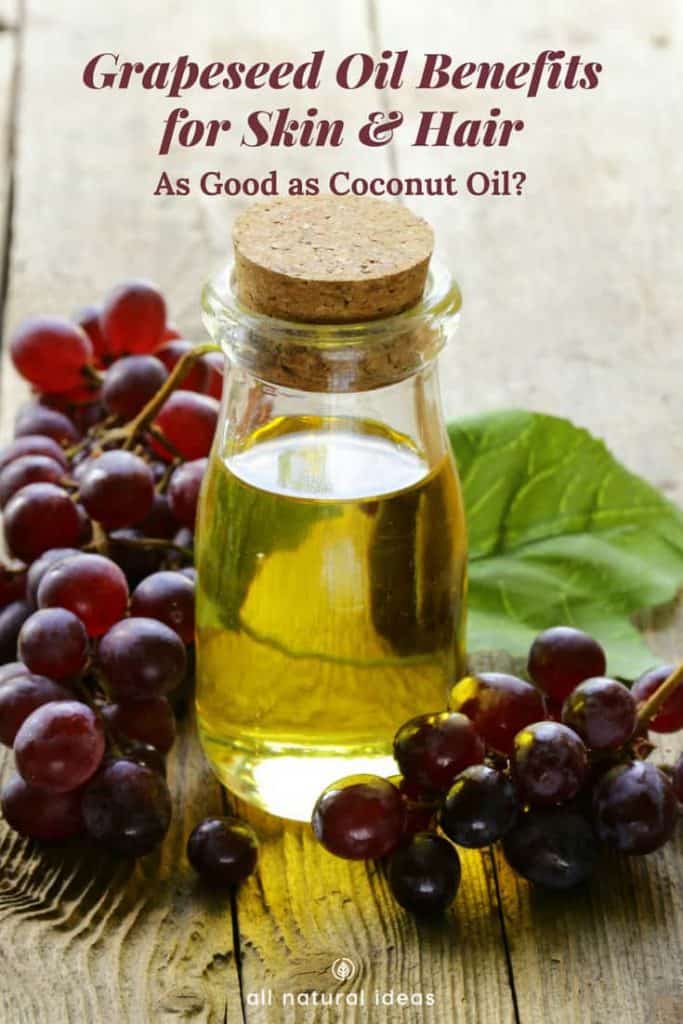
You love to drink wine. It helps you relax. Plus, there are health benefits from wine, too. Especially, red wine.
That’s because red wine contains an antioxidant, resveratrol. Resveratrol protects your heart. Particularly, the blood vessels that line it.
So drink up … in moderation. And eat grapes, too.
For at least 8,000 years, humans have consumed wine. But it’s only been in the last 100 years or so that the seeds from grapes in the winemaking process have been saved.
And one of the by-products of wine is grape seed oil.
Since about the early 1920s, with the advent of mechanical oil extraction methods, grape seeds ceased to be discarded from the winemaking process.
Today, grape seed oil (henceforth: GSO) enjoys popularity as a functional food. (Perhaps not as much as coconut or olive oil, but close.)
GSO extracts are also popular dietary supplement. People use GSO extract for several reasons.
Poor blood circulation, especially from the veins in the legs to the heart is one common use. It also may heal wounds and reduce inflammation.
Grapeseed oil benefits for skin and hair
The benefits of GSO in general are well-documented. Although, to be sure, the positive results mostly come from lab tests. Not human trials.
And if you search medical journals for the benefits of GSO on skin and hair, you won’t find much info.
But GSO is becoming more widespread as an ingredient in cosmetics. The reason why is its nutritional profile.
GSO is particularly rich in vitamin E. You probably already know that vitamin E is great for your skin and hair.
The reason why is that this fat-soluble nutrient acts like a bouncer at a bar. It prevents free radicals (think radical drunks that can harm you) from entering your body.
If free radicals are left unchecked, they can age you really fast. The more the free radicals are kept out of the club (your bod), the better chance we have of not getting wrinkles and fine lines.
And in lab studies, GSO shows anti-inflammatory properties. It also protects the heart, kills microbes and may help prevent cancer.

Grapeseed oil benefits for skin and hair: what’s the best way to use it?
Like coconut or babassu oil, you can apply it topically. Some massage therapists use it in their practice.
You can also add it to your favorite essential oil (EO) blend. GSO itself isn’t an EO; it’s a carrier oil.
Again, it’s the high vitamin E content that’s a big reason why GSO is a key ingredient in some beauty products.
Several brands of moisturizers and lip balms contain it. It’s even in sunscreen.
However, adding it to your diet is another easy way to reap the grapeseed oil benefits for skin and hair.
The more foods you eat that kill free radicals, the better your chances for having more youthful skin and hair.
Just don’t cook with it.
Some people believe cooking with GSO is healthy because of its high smoke point: 420 degrees.
When food starts smoking, that’s when it starts becoming potentially cancer-causing.
So why not cook with it?
The problem with it is it contains a huge amount of omega-6 fatty acids.
There’s nothing inherently wrong with omega-6s. We need them for optimal health. After all, they are an essential fatty acid.
That means the only place you can get them is from food.
But most people eating a standard American diet (SAD) get way more omega-6s than omega-3s. The omega 6:3 ratio should be close to equal.
Unfortunately, the ratio is more like 20:1.
Another problem with cooking with GSO is it’s mostly unsaturated fat.
Although most medical professionals still suggest limiting saturated fat, the time you should have it is when you’re cooking. (Obviously, this isn’t a concern if your concern is just grapeseed oil benefits for skin and hair.)
Coating your frying or baking pan with a saturated fat like coconut oil is better for your health. The molecules don’t break down very easily when exposed to heat.
However, both poly- and monounsaturated fats spoil much easier when exposed to heat. Consequently, it’s better to use GSO as a topping instead of a cooking oil.
Benefits of grapeseed oil for hair
It’s also good for hair for the same reason it’s good for skin: abundance of vitamin E.
In addition, there’s other nutrients (proteins and minerals) that may help prevent hair loss or even help nourish hair roots and shaft.
There’s even a hot GSO treatment you can try at home. If you want your hair to have a richer luster (appear more shiny, without the greasy feel), it might be worth a shot.
This particular hot treatment comes courtesy of Good Health Academy. The academy recommends using lavender or rosemary essential oil in the treatment.
The ratio of the EO to the GSO should be roughly one drop EO to 4 tbsp GSO. The article by the Academy recommends mixing them in a plastic baggie, making sure the seal is tight.
Place the baggie in hot water, but not scalding hot. Leave the baggie in the hot water for about 10 minutes.
During this time, wash your hair with shampoo. (Or you can do a no ‘poo treatment.) The next step is applying the GSO/EO mixture.
Apply the warm oil to your scalp. The Academy recommends fixing your hair into a ponytail if it’s long enough.
Starting with the roots, add the oil. Work it towards the tips. And enjoy massaging it into your scalp.
Leave in for 20 minutes. Then, rinse your hair with warm water, followed by cool water.
Try this treatment a couple times a week. Just make sure to wait awhile before combing your hair.
You may also want to rub some onto your skin. One of the fatty acid compounds in GSO might help unclog skin pores.

More grapeseed oil benefits for skin and hair
The antioxidants in the natural oils from the seeds have been shown to prevent skin tumors from forming.
Moreover, in one study on hairless mice, they decreased the size of skin tumors exposed to cancer-causing UV radiation.
UV radiation weakens the immune system. However, the antioxidants in grape seeds prevent the immune system from weakening (in mice). [SOURCE]
Benefits of grapeseed oil for overall health
In addition to the benefits above, here’s what else it might do for your health.
It can help prevent the hardening and clogging of arteries. In addition, it plays an important role in blood clotting. (For this reason, be careful not to eat too much of it if you take Coumadin or warfarin.)
Moreover, it may help improve cholesterol levels, especially LDL cholesterol.
What is grape seed oil good for?
As you can see, there are several benefits of GSO. It might not be as good as a cooking oil as some claim it to be.
However, the antioxidants it contains might enhance health. And, the nutrients in it might even benefit your skin and hair.
But just like any other food or supplement (in supplement form, it’s an extract), quality varies greatly.
When buying grape seed oil, choose one that’s organic and cold-pressed. Cold-pressing retains more of the beneficial compounds.
The ancient Greeks realized the health benefits of grapes. Perhaps not to the extent that modern researchers have determined.
But it’s only been about four decades since the seeds of grapes have been used for health.
There’s ongoing preliminary research on the seed extract by the National Center for Complementary and Integrative Health (NCCIH). The studies at the Center are assessing if it can help fight Alzheimer’s disease.
Another study on the extract will determine whether or not it can help with excessively high iron levels.
Also, research at the National Cancer Institute is looking at its possible role in helping prevent prostate, lung, and colon cancer.
Grape seed oil benefits for skin and hair seem to be legitimate. And as more research is conducted on it, we’ll likely see more evidence for its overall effects on health.
Looking for other oils to benefit your skin and hair? Check out:
How to Use Neem Oil for Skin and Hair
The Amazing Babassu Oil Benefits
